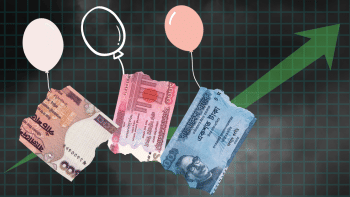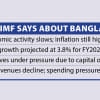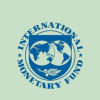High time we carried out necessary reforms

It is heartening to note that the International Monetary Fund (IMF) has given the final approval to Bangladesh's USD 4.5 million loan proposal. Even though the loan itself may not make an enormous difference – given that it is quite a small amount – it still sends a positive signal to the market and other multilateral lenders in regards to our economy. Additionally, in order to get the full loan amount from the IMF, which we will receive in instalments over time, Bangladesh will need to carry out a series of badly needed policy reforms.
In regards to these reforms, it is disappointing that the government had waited so long to agree to implement them, and only after being forced to agree to them to get the IMF loan, when our economists and experts had been calling for them for years. It is never a good thing to give up our policy sovereignty over to others, but on the other hand, it is a fact that our economy will benefit from most of the reform measures that it has agreed to implement – including key structural reforms that the government has been stalling over for a long time.
Among the reforms that the government needs to implement are raising the tax-GDP ratio, setting up an asset management company to dispose of soured loans, bringing down the banking sector's default loans to within 10 percent, and raising the capital adequacy ratio to the BASEL 3 requirement of 12.5 percent. The banking sector has been a particular worry for us for more than a decade. And a primary reason for that is the politicisation of the sector, which has allowed influential borrowers who are connected to the ruling party to borrow hefty sums – in many cases, violating rules and regulations of the banking sector – with seemingly no intention of paying them back. The government has repeatedly allowed these individuals – or organisations they are a part of – to get away with such malfeasance without any repercussions, while bending the existing rules in their favour and at the expense of our financial sector and the overall economy.
Given the existing economic reality, the government desperately needs to increase its social spending to support ordinary people – and also because it's a part of the IMF loan agreement – and for that, it needs to urgently raise the tax-GDP ratio. This is something our economists have been harping on for years. And they have even provided the government with roadmaps on how to achieve that. We hope the government finally adheres to their recommendations, as that is the only way to fulfil the IMF's conditions.
There were two major hurdles that prevented such reforms in the past. One was the government's refusal to acknowledge they are needed – which it can no longer do if it wants to acquire the full loan amount. The other was the political will to carry them out, which we hope has also changed. But aside from trying to implement these reforms to get the IMF loan, we hope the government also does it to improve the economic conditions of ordinary people. Keeping that in mind, the government should also look to implement other urgent reforms proposed by our economists and experts for our national interests.

 For all latest news, follow The Daily Star's Google News channel.
For all latest news, follow The Daily Star's Google News channel. 










Comments